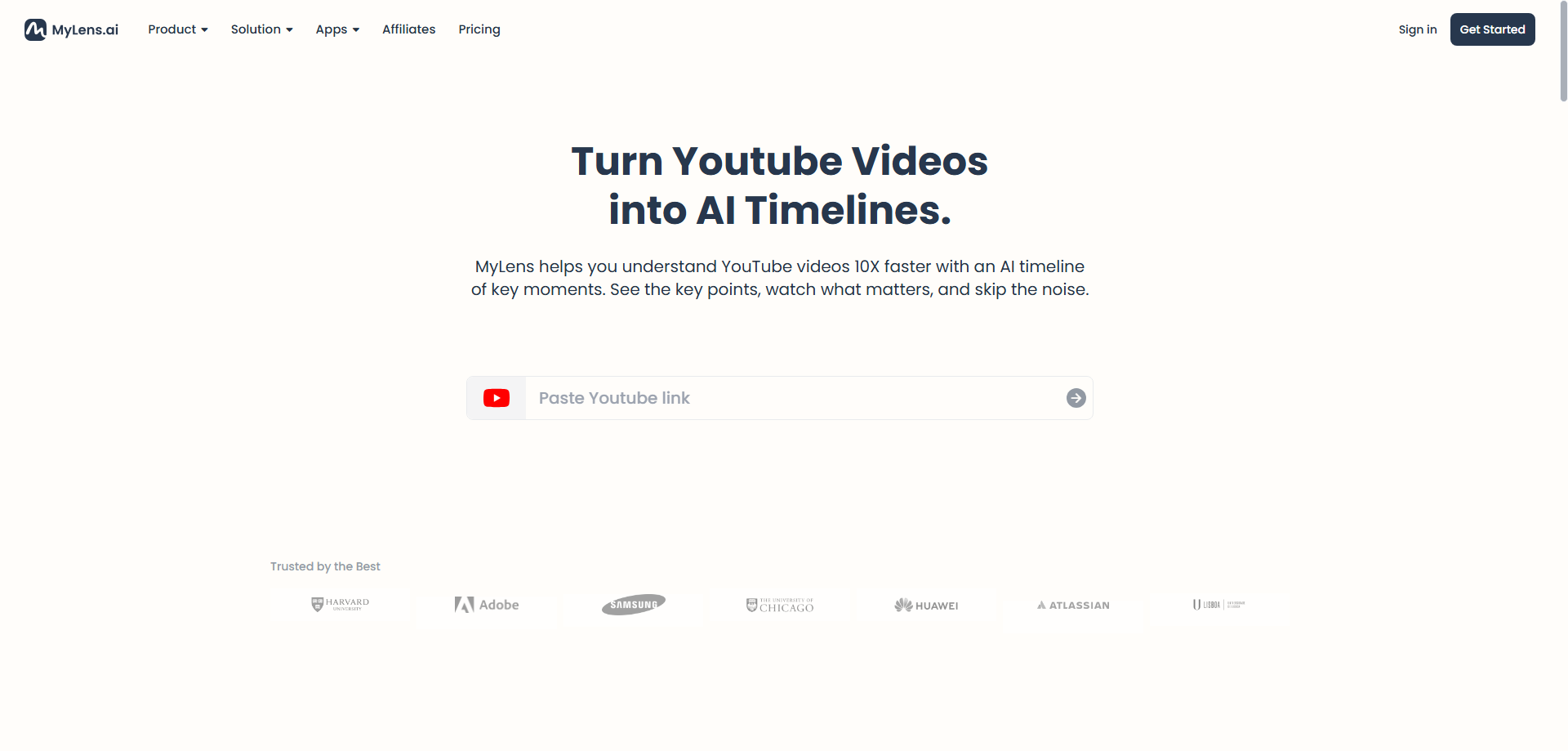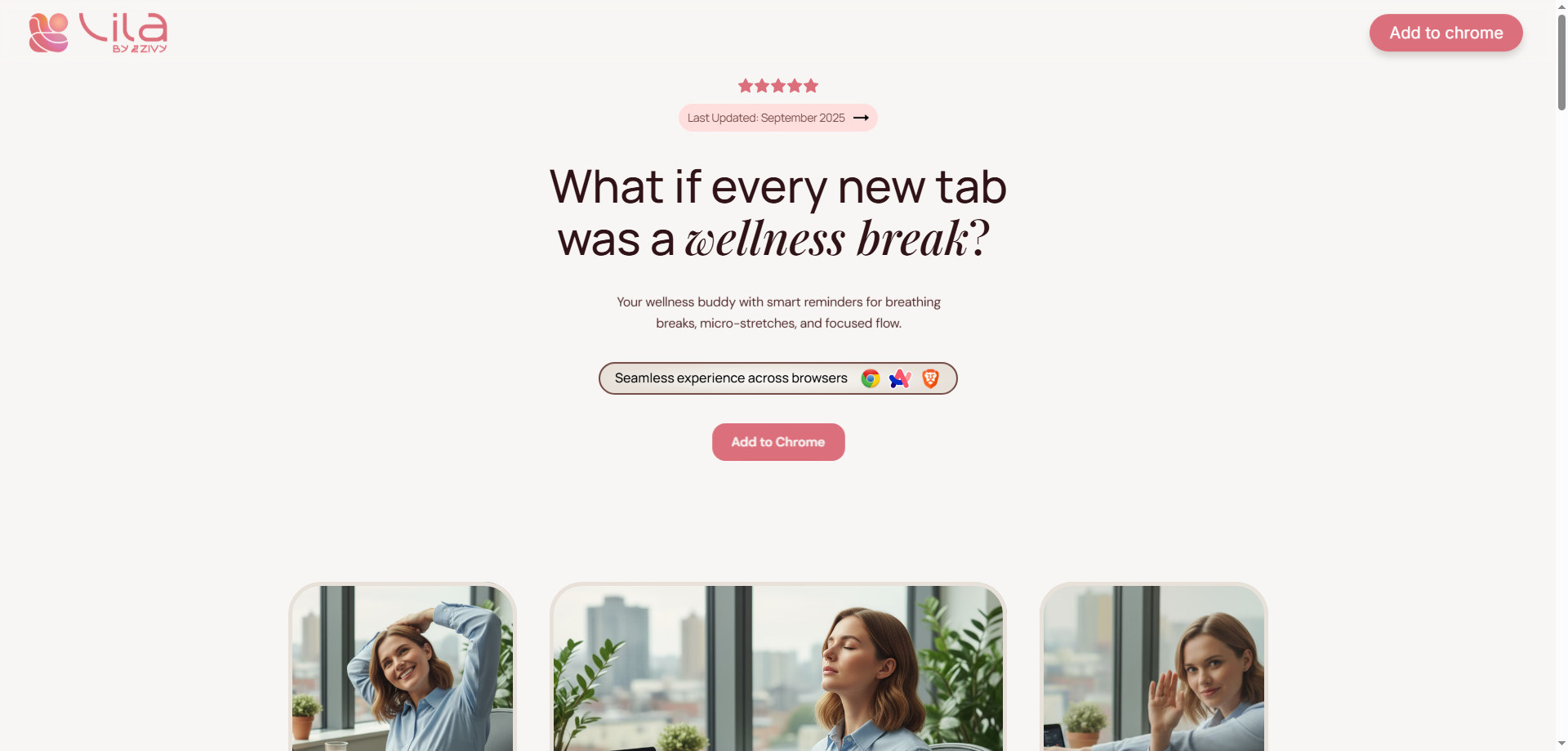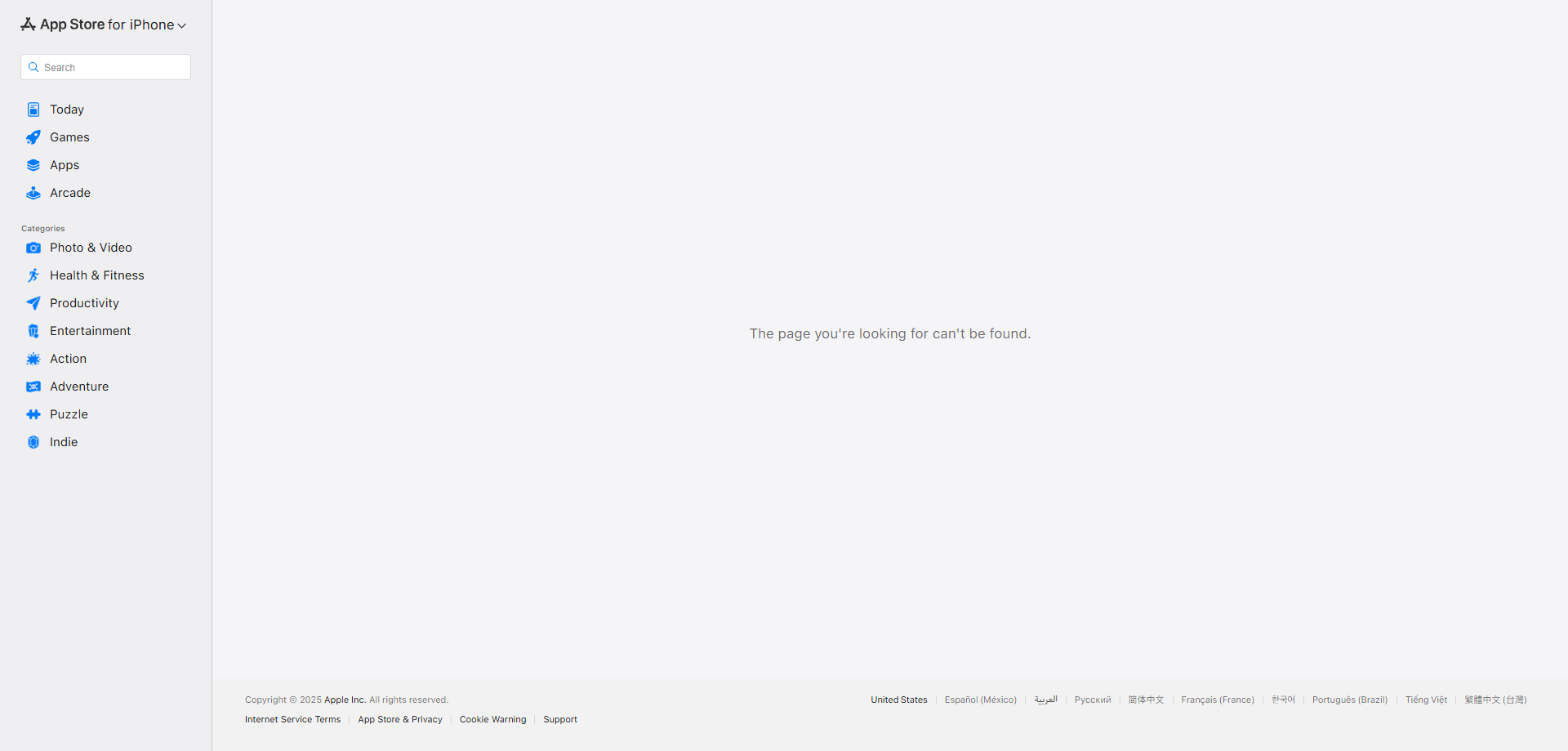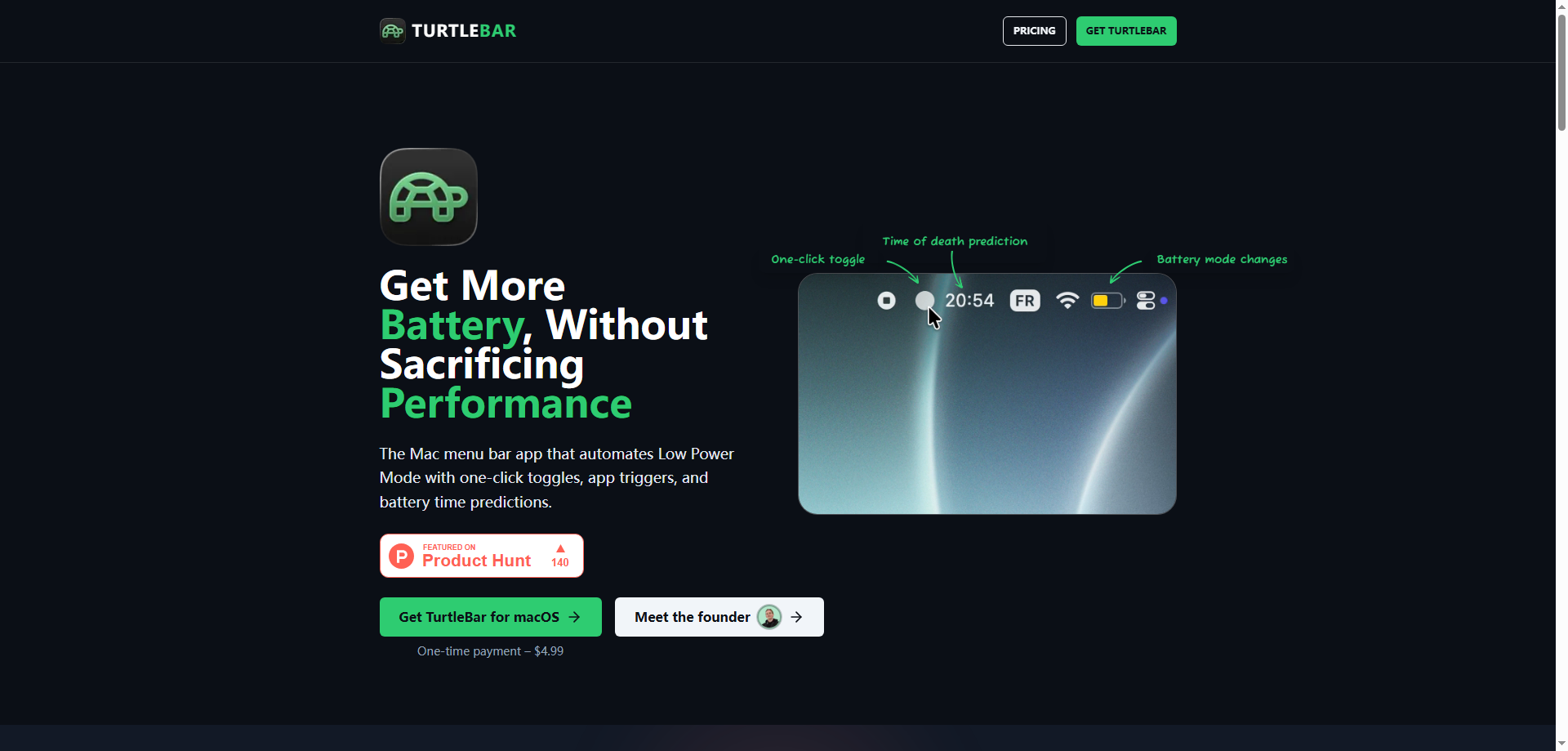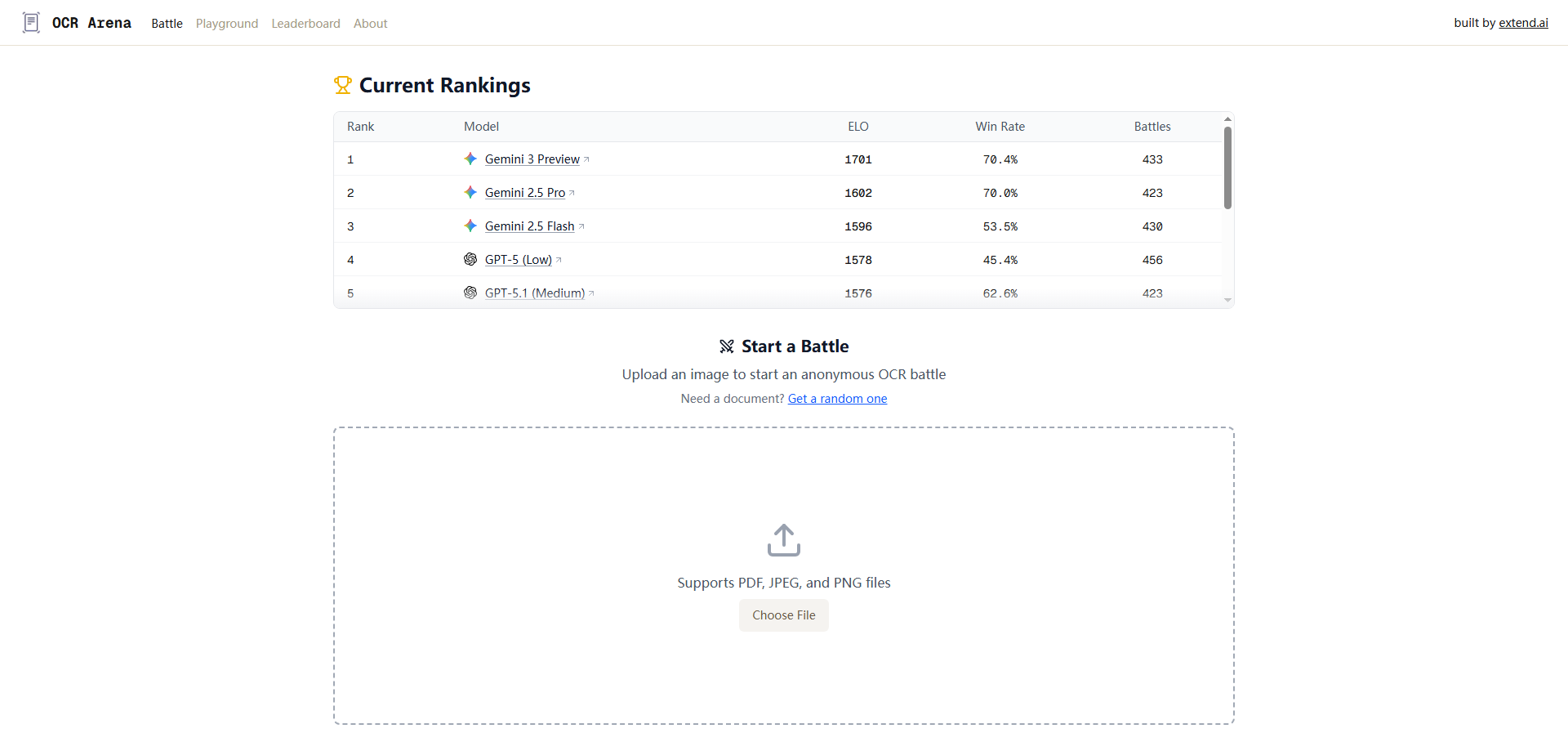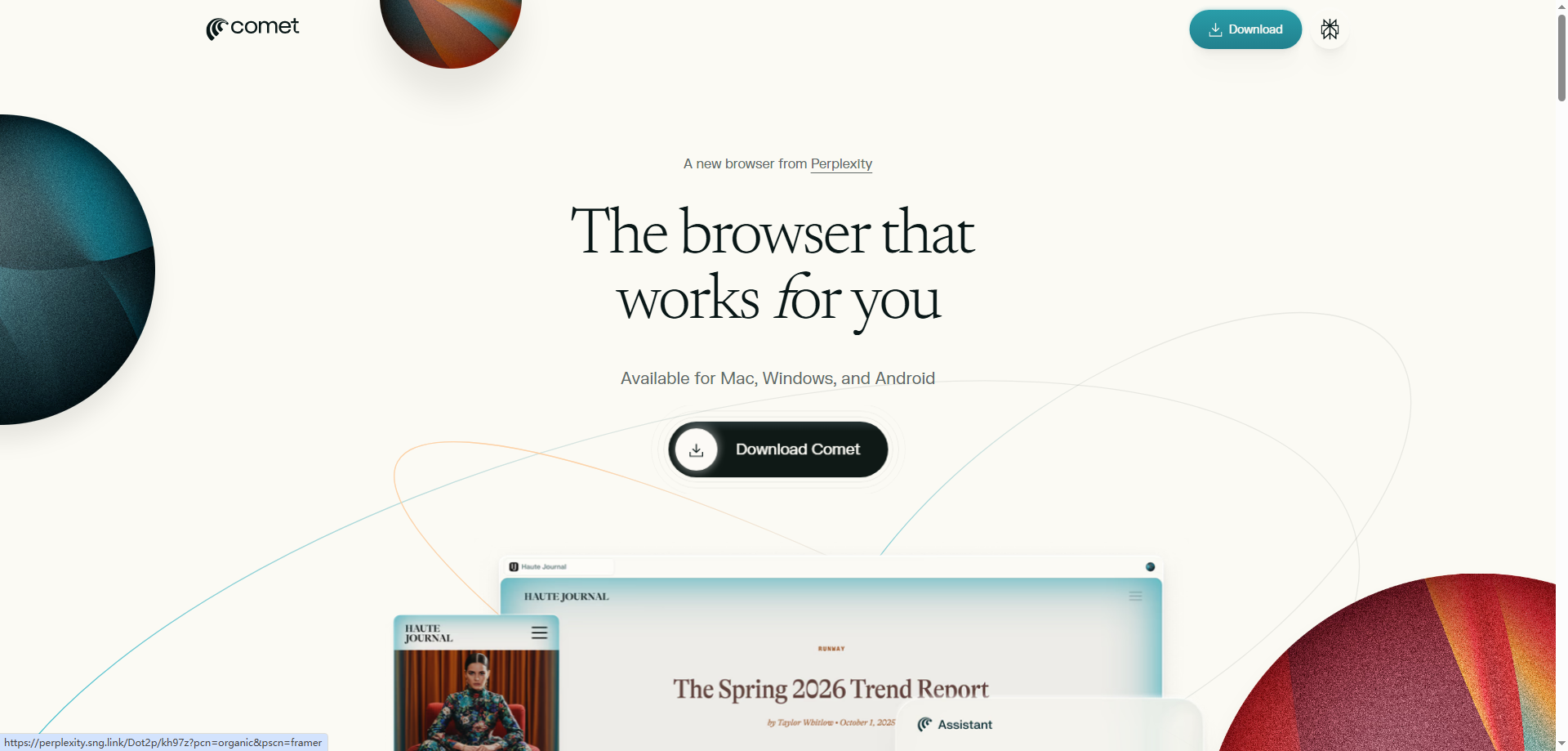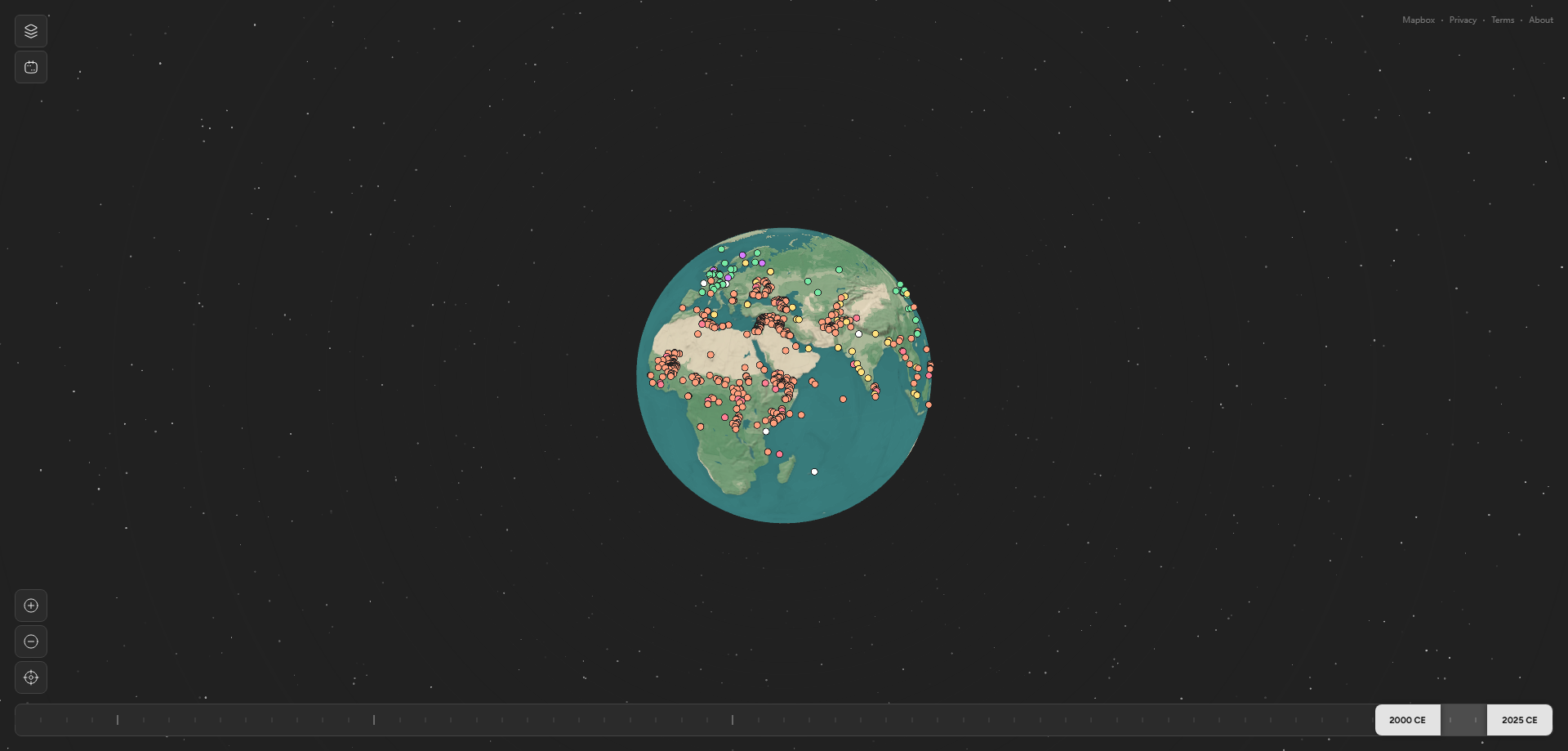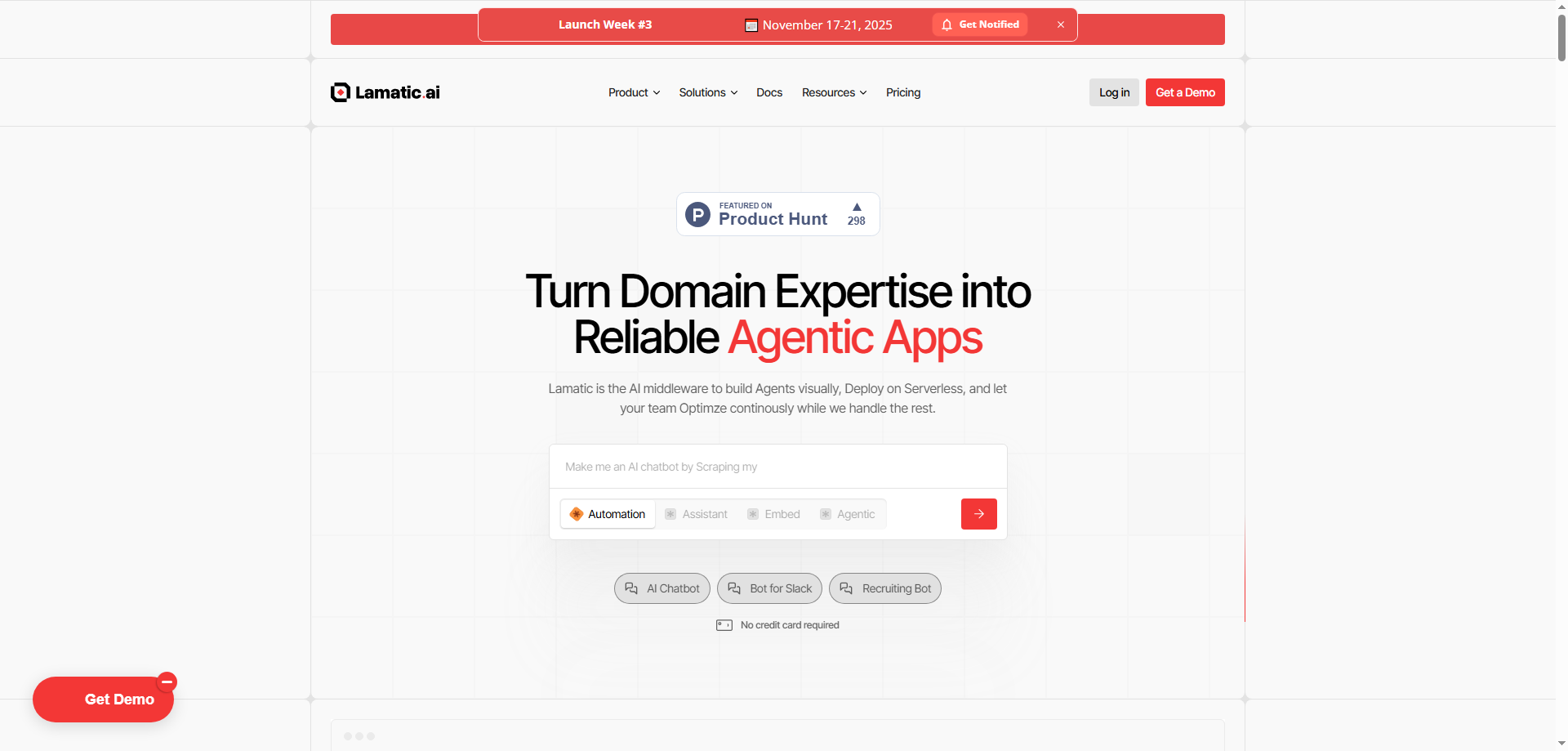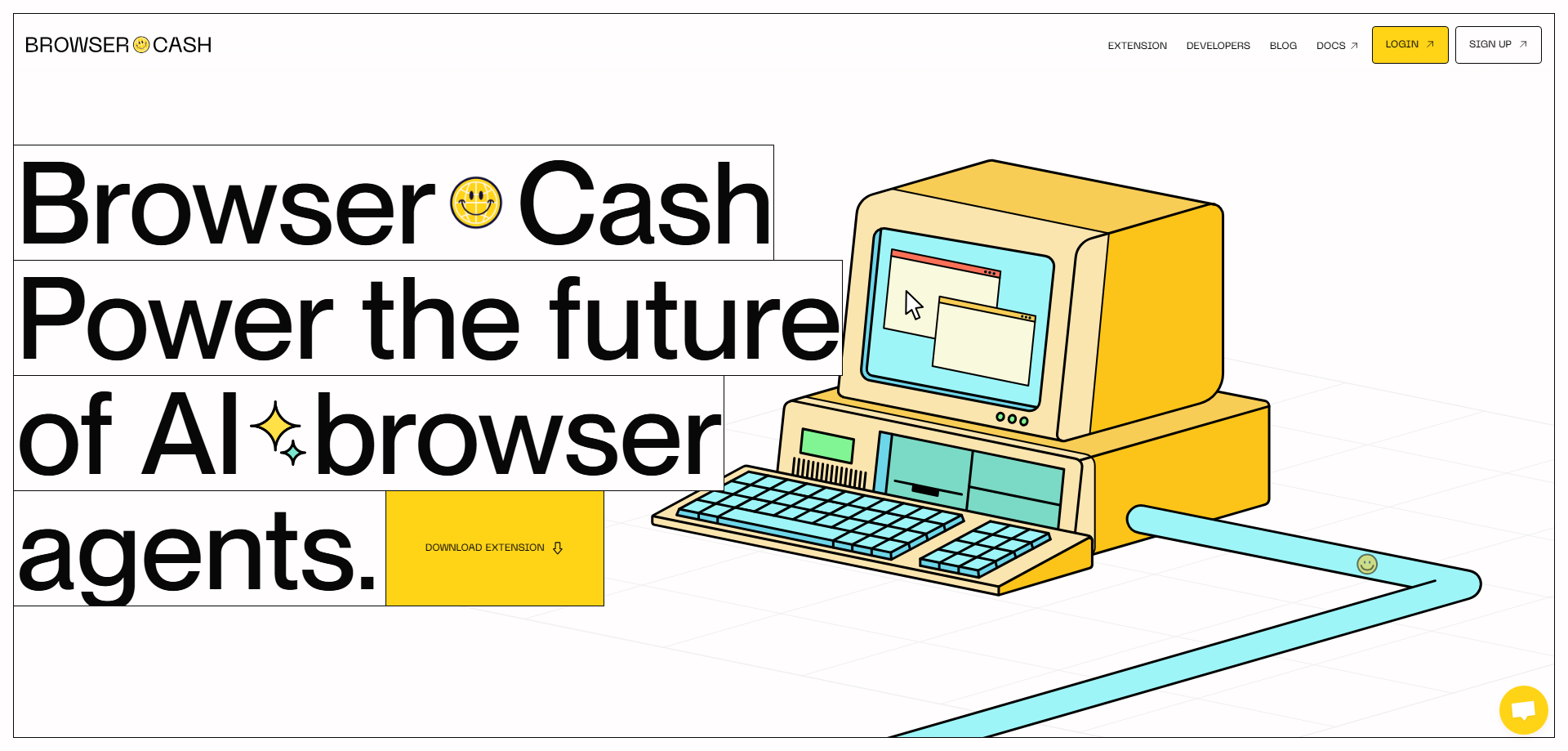Okay, So I Found This Thing That Changed How I Watch YouTube
Let me start by saying I spend way too much time on YouTube. Like, embarrassingly too much. And the number of times I've opened a 45-minute tutorial video just to find that one specific thing I needed? Countless. So when I discovered MyLens for YouTube, which promises to turn any YouTube video into an AI-powered interactive timeline, I was skeptical but intrigued.
After using it for a few weeks now, I've got some thoughts I need to share with you.
1. The Creative Brilliance Behind This Whole Idea
Let's talk about the creativity angle first, because honestly, I think this is where MyLens for YouTube really shows its genius.
It's Not Just About Saving Time – It's About Reshaping Content Consumption
Here's what I love about the creative thinking behind MyLens for YouTube: whoever built this understood something fundamental about how we actually consume video content in 2025. We don't watch videos linearly anymore. We scrub through them, we skip around, we're looking for specific moments. But YouTube's native interface makes this frustrating as hell.
MyLens for YouTube basically said, "What if we gave people an AI-generated map of the entire video before they even press play?" That's genuinely creative problem-solving. It's not just adding AI for the sake of it – it's using AI to solve a real friction point in how we interact with video content.
I tested this on a 90-minute podcast about AI developments (yeah, I know, very meta). Without MyLens for YouTube, I'd either commit to the full 90 minutes or try to scrub through manually, probably missing the parts I actually cared about. But MyLens for YouTube gave me this beautiful timeline showing exactly when they discussed different topics: "GPT-4 implications" at 12:34, "AI regulation debate" at 34:22, "Future predictions" at 68:15. I could literally see the whole conversation structure before diving in.
The "Choose Your Own Adventure" Approach to Video
What really got my creative brain excited is how MyLens for YouTube essentially turns passive video watching into an interactive experience. It's like they took the concept of "choose your own adventure" books and applied it to YouTube content.
When I used MyLens for YouTube on a cooking tutorial, I didn't need to watch the host's long introduction or the ingredient prep I already knew. I jumped straight to the "sauce technique" section that I was struggling with. But here's where it gets cool – when I didn't quite understand something, I could ask the AI to expand on that specific moment. It felt less like watching a video and more like having a conversation with the content.
This is creative product design at its finest: taking existing content (YouTube videos) and completely reimagining how users interact with it, without changing the content itself.
AI as a Video Curator, Not Just a Transcriber
A lot of AI video tools just transcribe and summarize. Boring. MyLens for YouTube goes further – it's curating the experience. The AI timeline feature identifies key moments, themes, and transitions that matter. It's like having a really smart friend who's already watched the video tell you, "Hey, the good stuff starts at 23:15, but if you want the background context, check out 8:40 first."
I used MyLens for YouTube on a conference talk, and it didn't just give me timestamps – it understood the structure. Introduction, problem statement, three main solutions, Q&A session. That kind of intelligent content mapping is genuinely creative.
2. Is This Going to Kill Other YouTube Tools? (Probably Some of Them)
Now let's get into the disruption question. Can MyLens for YouTube actually replace what we're currently using?
What's Definitely Getting Disrupted
Manual note-taking while watching videos? Yeah, that's basically dead for me now. I used to pause videos constantly to jot down timestamps and notes. MyLens for YouTube does this automatically and better. The AI timeline feature creates a better structure than I could manually in a fraction of the time.
Basic YouTube summary tools? They're in trouble. I've tried those Chrome extensions that give you a text summary of videos. Sure, they're helpful, but MyLens for YouTube is operating at a different level. It's not just summarizing – it's making the video navigable and interactive. That's way more valuable.
Podcast/video timestamp services? For creators who manually add timestamps to their descriptions, MyLens for YouTube might make that less necessary. Though I think creators will still do it for discoverability reasons.
My Real-World Replacement Test
I did an experiment. For one week, I tried to watch educational YouTube content the "normal" way – just the regular YouTube interface, maybe with captions on. The next week, I used MyLens for YouTube for everything.
The difference was dramatic. With MyLens for YouTube:
- I consumed about 3x more educational content because I could skip irrelevant parts
- My retention was better because I was watching what I actually needed
- I saved probably 5+ hours of watching time
- I felt way less frustrated with long videos
So yeah, for my use case (educational content, tutorials, podcasts), MyLens for YouTube has basically replaced my old workflow entirely.
What It's NOT Replacing
But let's be real about limitations:
Entertainment content: If I'm watching comedy sketches or music videos, I don't need an AI timeline. I want to watch the whole thing. MyLens for YouTube is solving a problem that doesn't exist for pure entertainment.
YouTube Premium: This isn't competing with YouTube's premium features like offline downloads or background play. Different value propositions.
Deep video editing tools: If you're a creator making compilation videos or doing serious editing, you still need proper video editing software. MyLens for YouTube is for consumption, not creation.
The social aspect of YouTube: Comments, likes, subscriptions – MyLens for YouTube doesn't replace the community aspects of YouTube.
So is it disruptive? Absolutely, for specific use cases. Will it replace YouTube itself? No, and it's not trying to. It's an enhancement layer, and that's actually smart positioning.
3. Do People Actually Need This? My Honest Assessment
Here's where things get interesting. Let me break down the actual user needs that MyLens for YouTube addresses.
The Pain Point Is Real (And Growing)
YouTube has a massive problem: video length is increasing, but viewer patience is decreasing. I feel this tension every day. I want to learn things from YouTube, but I don't have 45 minutes for every tutorial. The need for efficient video consumption is absolutely real.
MyLens for YouTube directly addresses what I call "YouTube time anxiety" – that feeling when you see a 1-hour video and think, "I want this information, but do I have time for this?" The AI timeline feature eliminates that anxiety by letting you see exactly what you're getting into and choose your own path through the content.
Different Users, Different Acceptance Levels
From what I've observed (and discussed with friends who I forced to try it):
Students and learners – LOVE IT
My friend who's learning web development through YouTube tutorials is obsessed with MyLens for YouTube. She says the AI timeline feature has cut her learning time in half. She can skip theory she already knows and jump to code demonstrations. High acceptance here.
Professionals staying current – EMBRACING IT
I'm in this category. When I need to understand a new technology, business trend, or industry development, I often turn to YouTube. But I need information fast. MyLens for YouTube is perfect for this. I can extract key insights from hour-long presentations in 15 minutes.
Casual entertainment viewers – DON'T CARE
My roommate watches YouTube for gaming content and vlogs. When I showed him MyLens for YouTube, his response was basically, "Cool, but I don't need this." For casual entertainment consumption, the value isn't obvious.
Content creators – MIXED FEELINGS
This is interesting. Some creators I've talked to like the idea because it might increase watch time for longer videos (people are more likely to engage if they can navigate). Others worry it might hurt their average view duration metrics if people are skipping around more.
The Learning Curve Reality
Here's the beautiful thing about MyLens for YouTube: there's basically no learning curve. You paste a YouTube link, you get an AI timeline. Click what interests you, watch that part. My tech-averse dad understood it immediately. That's huge for user acceptance.
The AI expansion feature (where you can ask it to elaborate on specific video moments) is slightly more advanced, but still intuitive. I found myself using it naturally after just a few sessions with MyLens for YouTube.
The Habit Formation Test
The real question is: does it become habitual? For me, yes. I now automatically think, "Should I run this through MyLens for YouTube first?" whenever I encounter a long educational video. It's becoming part of my workflow.
But I also notice I'm still watching some videos the traditional way. Short videos (under 10 minutes), pure entertainment, videos from creators I really enjoy – for these, I don't bother with MyLens for YouTube. And that's fine. It doesn't need to be used for everything to be valuable.
4. The Survival Question: My Rating ⭐⭐⭐⭐½ (4.5 out of 5 stars)
Alright, real talk time. Based on everything I've experienced and observed, here's my assessment of whether MyLens for YouTube can survive the next year.
Why I'm Rating It 4.5 Stars
The Strong Points:
-
Solving a growing problem – As YouTube content gets longer and more abundant, efficient navigation becomes increasingly valuable. This problem isn't going away; it's getting worse. MyLens for YouTube is positioned perfectly to ride this trend.
-
Clear value proposition – I can explain what MyLens for YouTube does in one sentence, and people immediately get why it's useful. That clarity is crucial for growth.
-
Low friction adoption – It's a tool that works with existing content on the world's second-largest website. You don't need to convince creators or platforms to change anything. You just use it.
-
Genuine efficiency gains – This isn't hype. I'm actually saving real time and learning more effectively with MyLens for YouTube. When a product delivers measurable value, people stick with it.
-
AI moat potential – The quality of the AI timeline generation matters a lot. If MyLens for YouTube can build the best AI for understanding and mapping video content, that's defensible.
Why I'm Not Giving It 5 Stars
The Risks I'm Worried About:
-
YouTube could build this themselves – This is the big one. YouTube has all the infrastructure, all the data, and all the user base. If they decide that AI timelines should be a native feature, MyLens for YouTube could be in trouble. Google has the resources to build something similar overnight.
-
Competition is inevitable – The barrier to entry isn't super high. I'd bet we'll see 10+ competitors trying to do AI video navigation within months. MyLens for YouTube needs to stay ahead on quality and features.
-
Monetization challenges – How does MyLens for YouTube make money sustainably? Freemium model? Subscription? Usage limits? I haven't seen a clear monetization strategy yet, and that worries me about long-term viability.
-
YouTube's Terms of Service – Does heavy automated analysis of YouTube content violate any ToS? Could YouTube restrict API access? This legal/platform risk is real.
-
Accuracy concerns – The AI timeline feature is only valuable if it's accurate. If it misidentifies key moments or creates misleading timelines, user trust evaporates quickly. This is an ongoing challenge.
The Opportunities I'm Excited About
Where MyLens for YouTube Could Really Win:
-
Educational partnerships – Schools, online learning platforms, corporate training programs – these could all benefit massively from MyLens for YouTube. If they can lock in B2B partnerships, that's serious revenue potential.
-
Creator tools – What if MyLens for YouTube pivoted to also help creators understand their own content better? Auto-generating timestamps, identifying engagement peaks, suggesting content restructuring based on the AI timeline analysis. That could be huge.
-
Platform expansion – Right now it's YouTube only, but the core technology could work for any video platform. Vimeo, Twitch, educational platforms, corporate video libraries. The total addressable market could be way bigger.
-
AI agent integration – Imagine MyLens for YouTube working with personal AI assistants to curate video content based on your learning goals. "I need to learn React Hooks" → your AI finds relevant videos and uses MyLens for YouTube to create a custom learning path. That's powerful.
-
Data insights – The aggregate data from millions of users navigating video content could reveal fascinating patterns about what people actually find valuable in videos. This data could be valuable to creators, platforms, and advertisers.
My Survival Prediction
Here's my honest take: I give MyLens for YouTube a 75% chance of not just surviving but thriving in the next year, assuming:
- They execute well on product quality and keep the AI timeline feature highly accurate
- They find a sustainable business model (I'm guessing freemium with premium features)
- YouTube doesn't shut them down or build a competing native feature
- They can move fast enough to stay ahead of inevitable competitors
The 4.5-star rating reflects my confidence tempered by real risks. This is a genuinely useful product solving a real problem, but it's in a precarious position being built on top of someone else's platform.
My Final Thoughts on MyLens for YouTube
Look, I'm going to keep using MyLens for YouTube because it genuinely makes my life better. I'm learning faster, wasting less time, and getting more value from YouTube's massive educational content library.
Is it perfect? No. There are definitely moments when the AI timeline feature misses nuances or when I'm better off just watching a video normally. But those are the minority of cases.
Do I think you should try it? Absolutely yes. If you watch any educational content, tutorials, long-form interviews, or informational videos on YouTube, MyLens for YouTube will probably save you hours and improve your learning outcomes.
The bigger question is whether this becomes a sustainable business or gets absorbed into YouTube's native features. My money is on MyLens for YouTube carving out a valuable niche, at least in the medium term. They've got a head start, they're solving a real problem, and they're executing well.
But they need to move fast, build defensible features, and probably diversify beyond just being a YouTube tool. The opportunity is real, but so are the risks.
My Rating: ⭐⭐⭐⭐½ (4.5/5 stars)
Strong survival likelihood with significant growth potential, but vulnerable to platform risk and competition. Recommend trying it now while it's likely free or cheap.
Would I bet on MyLens for YouTube being around and thriving in a year? Yeah, I would. But I'd also tell them to watch their backs because the big players are definitely taking notes.
